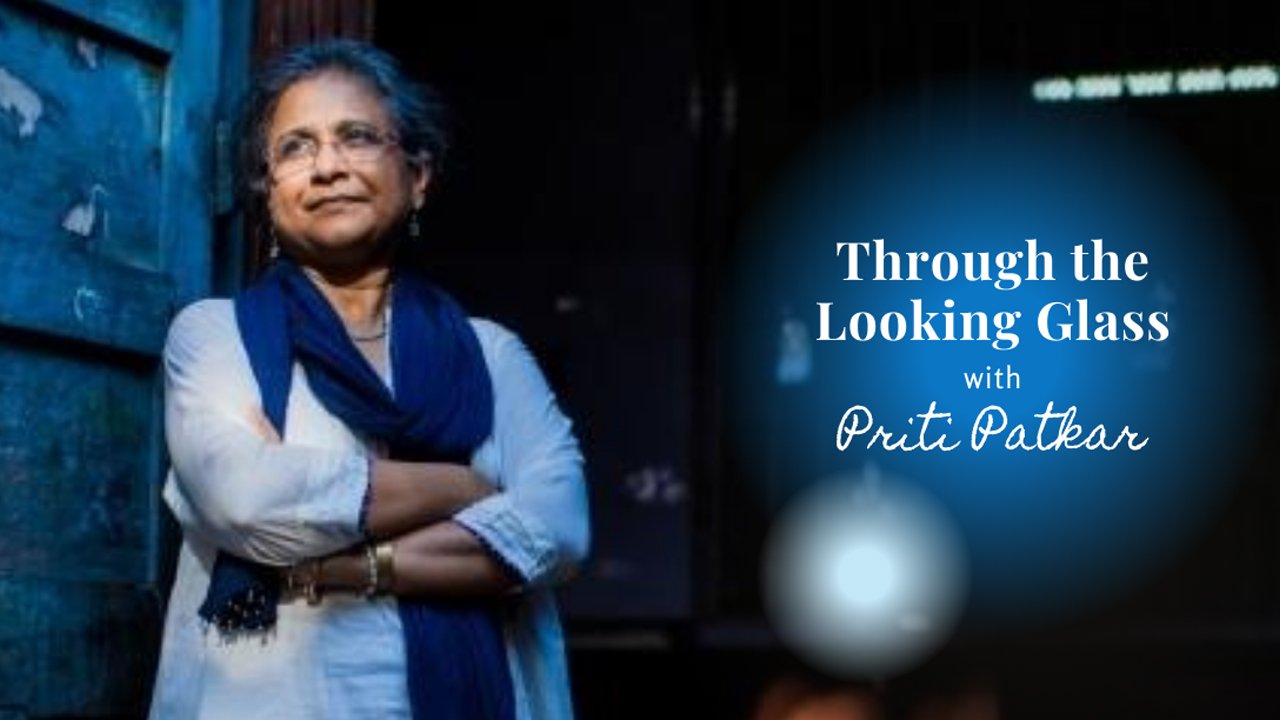Priti Patkar
CO-FOUNDER AND EXECUTIVE SECRETARY
In this series, our co-founder Priti Patkar shares her thoughts, learnings, and challenges of working with child protection for over 33 years. In this month’s edition, she answers some questions that we often receive on Prerana’s psycho-social interventions in cases of commercial sexual exploitation.
1. How does Prerana work with children rescued from commercial sexual exploitation?
At Prerana, our work with the children rescued from situations of commercial sexual exploitation mostly begins after they are referred to us by the Child Welfare Committee(s) (CWC) and admitted into a Children’s Home.
Almost in all cases, the children are referred to us by the Child Welfare Committee(s) (CWC) or by a caseworker of the child care institution. Our casework follows a child-centric trauma-informed-care approach. We need to be mindful and ensure that our interventions do not re-traumatize the child. As far as possible, we try to avoid the child having to repeatedly disclose the process of their trafficking and their time in the sex trade.
2. What happens after Prerana gets a referral?
Caseworkers and mental health professionals are the first responders after a referral is received. Once we receive the referral, we conduct a needs and risk assessment. This helps us develop a customized intervention plan for the child. A child’s stay in the Children’s Home could be for any duration between the period of 6 months to 3 years, depending on the child’s need for shelter-based care. It is important to ensure that during this period, the basic needs of the child are known and met. While conducting a risk assessment, we explore the possibility of families having access to their children, and whether this access would be safe, and in the best interest of the child. In case, the family members are found unfit or if the child expresses any concern over making contact with the family, the CWC is notified about the same, and these concerns may be addressed.
3. Is the child informed about the process?
Informing children about their rights and entitlements is an ongoing and integral part of our interventions. The caseworker ensures that the child’s rights are upheld during their stay in the Children’s Home, including their right to access medical aid and the right to access their family. The latter may be assessed and upheld based on a case-to-case basis as in many cases, the child’s vulnerabilities stem from their family. The caseworker regularly holds discussions with the child to inform them about their rights.
4. What is the role of the caseworker?
A significant role of the caseworker is to prepare the Individual Rehabilitation Plan of the child post their initial adjustment in the child care institution. The caseworker engages the child and takes inputs from various other professionals involved in the case (like a doctor, mental health professional, skill trainer, etc.) to prepare and review this plan on a timely basis. Educational and vocational skill training assessments are made and the child’s interest and skills are also taken into consideration to decide on the rehabilitation of the child. The caseworker may be required to act as a bridge between the CCI and the educational institution or vocational training service provider. At times, the caseworkers are also involved in procuring the relevant documents to further the admission process for the children by coordinating with their previous educational institutions. Some of these interventions might begin when the child is in the CCI and have to be integrated with the child’s restoration plan/process.
In almost all cases, the caseworker also does legal follow-ups. Within the ambit of legal follow-up, the caseworker keeps both the child and in certain cases their family informed about their legal case. Additionally, the caseworker also coordinates with the police, assists the clients during their statements recorded under Section 164 of (recording of the statement by the Court – Magistrate) Code of Criminal Procedure-1973, and remains in touch with the CWC. In some cases, when the family of the child is threatened by the accused, the caseworker may also assist the family by coordinating with the police to address the same. The caseworker also assists the client in accessing victim compensation schemes.
5. How should stakeholders interact with children?
Our interventions are based on controlled emotional involvement and empathetic, non-judgmental interaction where a child’s right to be heard and their right to privacy is respected. However, we are not the only ones coming in contact with children. All those who interact with children must be empathetic and non-judgmental. They must steer clear of victim-blaming, uphold the child’s right to be heard, and work in the best interest of the child. To ensure uniformity in the understanding and implementation of the principles of care and protection, we regularly conduct trainings with caregivers. Under these trainings, we cover areas such as psychological first aid, working with children sensitively, principles of trauma-informed care, legal provision, right to privacy, and confidentiality among others. Our work always evolves to the dynamic needs and requirements of the victims.
6. How do children respond to staying in a Children’s Home?
Children living in Children’s Home may have experienced severely traumatic incidents. Due to being away from their home and family, they often experience separation anxiety. Children’s behavior, coping skills, and the presence of any mental health concerns are regularly observed in the Children’s Home. Based on these observations, some children may also be referred to trained mental health professionals. We have observed that many children also show self-harming tendencies. These children are then immediately referred to mental health professionals with experience of working with victims of sexual violence. A regular follow-up with the mental health professional and the child is maintained by the caseworker. A safety plan is also developed by the caseworker with the active participation of the child and other significant adults in their life. It is important that the uniqueness of each case is recognized and interventions are planned accordingly.
7. Are the families involved in the child’s rehabilitation plan?
In addition to providing regular updates (legal as well as the child’s wellbeing) to the family, we also recognize that they also need additional support. Working with families is a significant part of Prerana’s interventions. We work with families while the child is residing in the Children’s Home as well as post their restoration. We have observed that children may find it difficult to readjust to the same localities. In some cases, the family may also be threatened and forced to relocate. The relocation is extremely tough for the families and children, where the latter may be forced to live with extended family members. The child may face difficulty in returning to school, the siblings may find it difficult to readjust after the client’s restoration, and the adult members of the family may need assistance to find jobs or to build skills. The caseworker assists the child and the family throughout this process and helps them rebuild their lives. This is an important step in our family strengthening approach which includes working with the family to strengthen familial bonds, improve parenting skills, communication skills, problem-solving abilities, and reduce aggressive behavior.
8. What happens if a child (now adult) is in need of care after they exit the Juvenile justice system?
In some cases, the caseworker may assess the need for aftercare services (to be provided after the child turns 18 and is exiting the Juvenile Justice system). The caseworker provides options for aftercare facilities and assists the clients in accessing them. Since this is a significant transition period for the clients, psychosocial aid to assist the child in adjusting to independent living is also provided.








